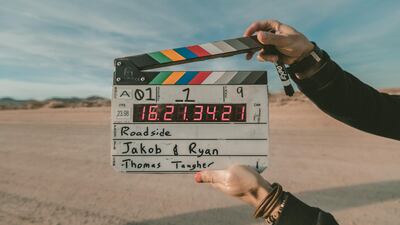When Covid-19 first hit and the entertainment industry had to shut down productions across the globe, most professionals assumed they would only be out of work for a few weeks.
But, three months later, shooting is still yet to restart, while it has now become clear that the impact of the coronavirus pandemic will be felt for months and possibly years to come.
At SeriesFest on Sunday, June 21, some of the most important people in the television industry opened up how the landscape has been altered in recent weeks. That’s not just because of the pandemic, though.
Critical Content president Jenny Daly says that the Black Lives Matter movement has inspired them to create more content with a conscience, that’s also empowering, exciting, has gravitas and brings “a voice to areas that matter".
At the same time, with people locked in their homes and in desperate need of escapism, Daly also acknowledges the necessity for levity. That's exactly why It's Always Sunny in Philadelphia and Mythic Quest creator and star Rob McElhenney decided to make a quarantine episode of his new Apple+ sitcom.
McElhenny hopes it makes "people feel less alone" and provides a "sense of optimism for the future", although his original motivation was to just get Mythic Quest's crew back to work for a couple of weeks. That proved to be incredibly difficult, even after they were provided with 30 iPhones and 30 sets of AirPods by Apple in order to co-ordinate filming from home.
The uniqueness of the shoot didn’t just make it more rewarding, but it also gave each member of the cast and crew a deeper appreciation of every job on set.
The evolution of production hasn’t just been reserved for in front of the camera, though. Blumhouse TV’s co-president, Jeremy Gold, says the industry has made sweeping innovations in post-production. Editors and sound mixers have been able to do their jobs at home, while Gold has also realised that he can give them more creative freedom.
Gold even thinks that he’s going to reduce his carbon footprint in the aftermath of Covid-19, as there’s now no need to travel across Los Angeles, the US or beyond for face-to-face meetings when doing it online has more than sufficed.
But despite these practical adjustments, Marc Juris, president of We TV, was keen to stress that the creative process has been hampered due to the pandemic.
While there’s been more of a focus on character and story, instead of special effects and action, Juris says that it has been impossible to replicate the energy of a writers' room online. The inability to brainstorm and exchange ideas with colleagues quickly has also been felt.
For Propagate Content founder Howard Owens, there’s also a worry that the longer production is closed, the more people might be “squeezed from the fringes” of the entertainment industry.
“We want more people employed. We want to encourage and force true diversity,” he says. “That is something that we’re battling up against in this difficult time.”
Each member of the panel agreed that, despite the complications brought on by the Covid-19 pandemic, there has still never been a better time for creatives that want to get into TV.
Gold encouraged people to use this time to find their voice and tell their story. Daly pointed out that the internet is now awash with platforms where you can “show the world what you’re capable of".
McEllhenney, meanwhile, revealed that any camera phone is better than what they shot season 10 of It's Always Sunny in Philadelphia on, meaning that, once lockdown is over, "you have the ability to make what you want to make right now".


